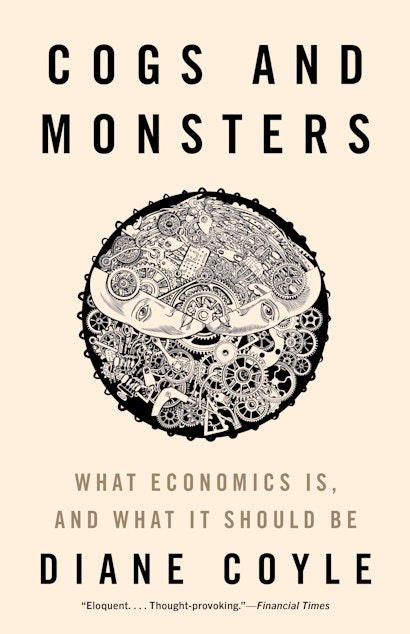Diane Coyle asks how economics needs to change to keep pace with the twenty-first century and the digital economy.
Digital technology, big data, big tech, machine learning, and AI are revolutionising both the tools of economics and the phenomena it seeks to measure, understand, and shape. Coyle explores the enormous problems – but also opportunities – facing economics today if it is to respond effectively to these dizzying changes and help policymakers solve the world’s crises, from pandemic recovery and inequality to slow growth and the climate emergency.
Mainstream economics, Coyle says, still assumes people are ‘cogs’ – self-interested, calculating, independent agents interacting in defined contexts. But the digital economy is much more characterised by ‘monsters’ – untethered, snowballing, and socially influenced unknowns. What is worse, by treating people as cogs, economics is creating its own monsters, leaving itself without the tools to understand the new problems it faces.
Coyle asks whether economic individualism is still valid in the digital economy, whether we need to measure growth and progress in new ways, and whether economics can ever be objective, since it influences what it analyses. How can economics adapt to the rewiring of society, including by digital technologies, and realise its potential to play a positive role in the twenty-first century?
In conversation with Romesh Vaitilingam.
Diane Coyle is the Bennett Professor of Public Policy at the University of Cambridge. Her books include GDP: A Brief but Affectionate History, The Economics of Enough: How to Run the Economy as If the Future Matters, and The Soulful Science: What Economists Really Do and Why It Matters (all Princeton). She lives in London. Twitter @DianeCoyle1859
